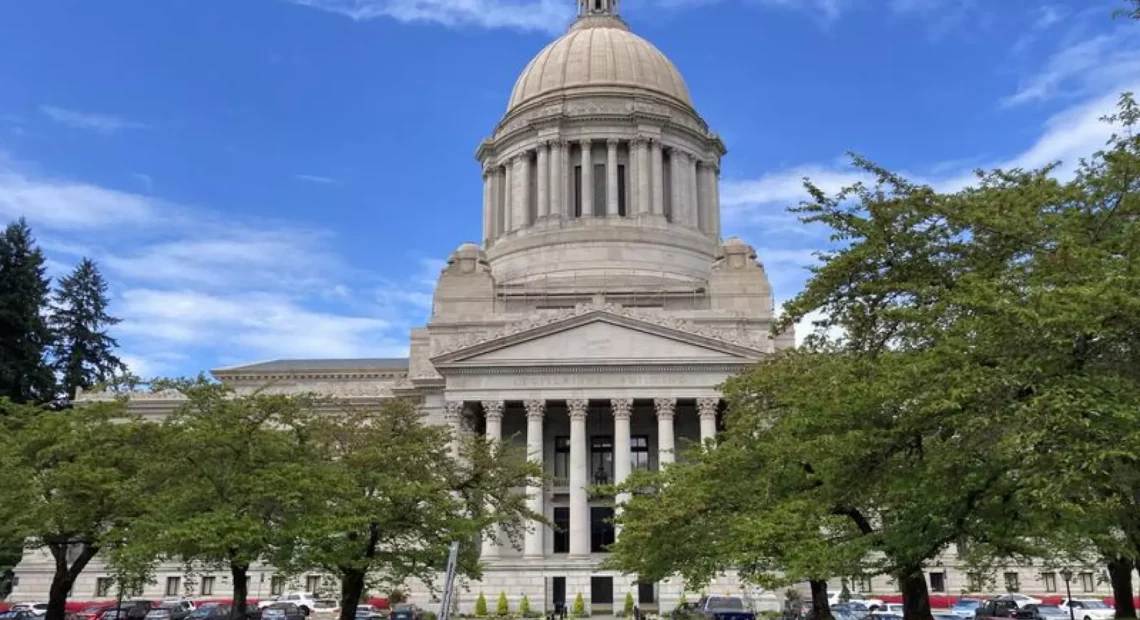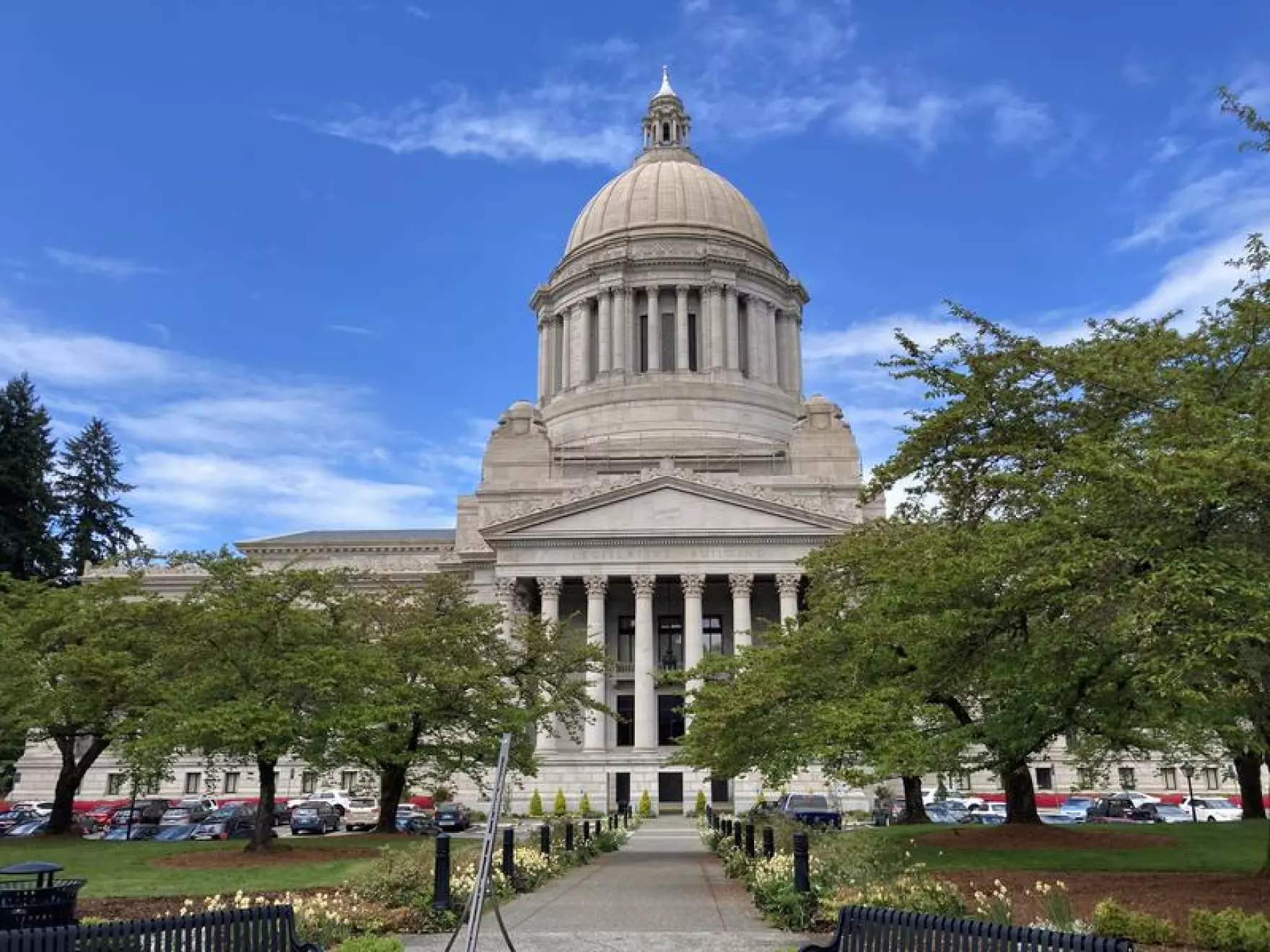
Washington leaders call new drug law ‘imperfect’ solution to overdose crisis
Read
Washington is getting a new drug possession and addiction treatment law, after the state legislature approved a final deal during its one-day special session on May 16. But many lawmakers call it a hard compromise that represents just one step toward tackling the state’s drug crisis.
Under the law, public drug use and drug possession are both gross misdemeanors, punishable by 180 days in jail, a $1,000 fine, or both. Jail time could increase to a year for someone with prior offenses.
In addition to creating new criminal penalties, the legislation also directs millions of dollars in funding toward expanding treatment facilities and resources across the state. The law also includes a requirement for prosecutors to approve pretrial diversion from the legal system and into recovery, and allows for city and county governments to craft their own rules for harm reduction services, like needle exchanges. It also says that people who complete 12 months of treatment will have their possession and drug use charges dismissed.
“This is a continuum – we’re trying to address a large systemic problem,” said Rep. Jamila Taylor (D-Federal Way).
Many who support the new compromise – including Gov. Jay Inslee, who signed it just hours after its final passage – said it strikes a balance between legal accountability and treatment. Inslee dismissed concerns that jail time could result in worse outcomes for people struggling with addiction, saying the legislation aims to use the legal system as a tool to get more people into treatment.
“This bill was not designed to fill our jails, it was designed to fill our treatment centers,” Inslee said at the bill signing Tuesday afternoon.
But while many lawmakers praised the new policy for its substantial focus on treatment, they also acknowledged the state lacks enough resources to provide those services to everyone who needs them right now.
“A lot of this policy is built around infrastructure and workforce that doesn’t exist,” said Rep. Peter Abbarno (R-Centralia), noting that it will take time to fully implement the recovery options outlined in the measure. “In many rural communities, there’s just not that infrastructure, there aren’t beds, there aren’t treatment providers – this bill is at least a recognition of that.”
Rep. Roger Goodman (D-Kirkland), who was one of the lead negotiators on the bill for House Democrats, said the most immediate effect is that police will be allowed to intervene more quickly. The state’s temporary drug possession law – which was implemented last year and will be replaced by the measure that passed this week – required police to refer people to treatment twice before arresting them.
“We hope they don’t arrest, we hope that they hand off to therapeutic care, but at least they will be able to intervene and address the issue of public disorder in our communities,” Goodman said.
Despite the overwhelming majority of lawmakers who voted in favor of the compromise, legislators say it was a long road to get there.
“Nobody got everything they wanted in this bill,” said House Speaker Laurie Jinkins (D-Tacoma.)
The measure’s final passage comes after months of intense negotiations among lawmakers, with some pushing for decriminalization while others sought tough legal penalties. Ultimately, the final bill struck a middle ground after a team of lawmakers from all four caucuses came to an agreement Monday. It passed the House 83 to 13, after the Senate approved it 43 to 6 Tuesday.
Those who remained opposed to it cited various reasons why they wouldn’t support the final version of the bill.
Rep. Jim Walsh (R-Aberdeen) and Sen. Mike Padden (R-Spokane Valley) said they want the state to return to tougher legal penalties. The State Supreme Court, in what has become known as the “Blake Decision,” struck down Washington’s felony drug law in 2021 because it didn’t require proof that someone knew they had drugs in their possession or intended to use them.
“The proper response would be to restore our drug laws as they were pre-Blake, with the addition of ‘knowingly’ as appropriate,” Walsh said. Meanwhile, Rep. Lauren Davis (D-Shoreline) and Rep. Gerry Pollet (D-Seattle) both voted in favor of an earlier version of the bill that died last month. They both switched to a no vote for the new compromise bill. Pollet said he was particularly concerned that the requirement for prosecutors to approve diversion could reinforce racial and income disparities for treatment access.
Groups like Columbia Legal Services, a legal aid and advocacy organization, and the ACLU of Washington also issued statements Tuesday, criticizing the legislation.
“The data and evidence have never supported maintaining criminal penalties as a solution to the public-health crises of substance use disorder,” said a statement from Alison Holcomb, ACLU of Washington’s director of political strategy. “That approach has and will continue to fail and will only funnel more people of color and poor people into our criminal legal system.”
But legislative leaders say the new law is a first step, and that they’ll monitor the data gathered throughout its implementation to adjust policies as needed.
“If we find there are racial and ethnic disparities in who gets diverted and who doesn’t, we will act,” Goodman said.
Republican Senate Leader John Braun (Centralia) said lawmakers will also monitor whether the new policy slows overdose deaths in Washington, which have drastically increased in recent years.
“If we’re not changing that number in the relatively near term, we need to continue to work on refining our solution,” Braun said.
Most of the law, including the new legal penalties for drug possession and public drug use, takes effect as the state’s temporary law expires on July 1.
















